HOW DOES TEAM COACHING WORK?
Team Coaching addresses issues such as:

Aligning behind common purpose and goals, developing strategic objectives and action plans

Developing an effective team operating model

Improving communication, reducing interpersonal conflict and creating a team bond

Collaborating cross-functionality, navigating impasses and working through systemic conflict

Balancing their roles on the senior leadership team with leading their own function and P&L

Restoring and building trust and confidence in times of change and transition

Supporting the development of a positive organizational climate and/or culture shift

Working with and creating trust amongst remote and virtual team members

Taking a consistent message out to the wider organization

Managing a complex web of stakeholders with competing expectations and priorities

Running the business while simultaneously transforming the business

Increasing the quality of engagement with employees and critical stakeholders

Managing complex relationships and interfaces between people, teams, functions and stakeholders
HOW DOES TEAM COACHING WORK?
Team Coaching addresses issues such as:

Aligning behind common purpose and goals, developing strategic objectives and action plans

Developing an effective team operating model

Improving communication, reducing interpersonal conflict and creating a team bond

Collaborating cross-functionality, navigating impasses and working through systemic conflict

Balancing their roles on the senior leadership team with leading their own function and P&L

Restoring and building trust and confidence in times of change and transition

Supporting the development of a positive organizational climate and/or culture shift

Working with and creating trust amongst remote and virtual team members

Taking a consistent message out to the wider organization

Managing a complex web of stakeholders with competing expectations and priorities

Running the business while simultaneously transforming the business

Increasing the quality of engagement with employees and critical stakeholders

Managing complex relationships and interfaces between people, teams, functions and stakeholders
HOW IS TEAM COACHING DIFFERENT?
Team coaching is different from other interventions, such as team-building, facilitation, and process consultancy, by having an explicit goal of developing the capacity, skills, knowledge, and capability of the team to manage and solve issues on its own.
While there are some overlaps between team coaching and other team interventions, there are considerable distinguishing features.
Research suggests that other interventions, such as team building, that often take team members away from their day-to-day context and focus on interpersonal relations and improving collaborative behavior do not reliably improve team performance.
While increasing mutual trust and respect are important, team coaching also focuses on motivation, strategies for performance, specific team processes or objectives, and increasing the level of skills and knowledge within the team.
In team-building interventions, the focus is typically on internal relationships and the activities are unrelated to work tasks. During this process, expertise remains with the facilitator and does not shift to the team. Team coaching, on the other hand, focuses on both internal and external aspects of team performance, specifically related to team tasks. Expertise also shifts to the team as they develop the capacity to continue to coach themselves moving forward.
Team facilitation and process consulting typically focus on a specific issue or problem that is distinct from the broader task or performance of the team. Insights and good intentions that often result from off-sites and away days are not sustained back in the workplace amid everyday demands and the reality of leading in an organizational context. Expertise stays with the facilitator as they direct or manage the learning process. Team coaching, by contrast, goes several steps further, helping the team to develop the capacity, skills, knowledge, and capability to manage these issues more effectively on its own.

HOW IS TEAM COACHING DIFFERENT?
Team coaching is different from other interventions, such as team-building, facilitation, and process consultancy, by having an explicit goal of developing the capacity, skills, knowledge, and capability of the team to manage and solve issues on its own.
While there are some overlaps between team coaching and other team interventions, there are considerable distinguishing features.
Research suggests that other interventions, such as team building, that often take team members away from their day-to-day context and focus on interpersonal relations and improving collaborative behavior do not reliably improve team performance.
While increasing mutual trust and respect are important, team coaching also focuses on motivation, strategies for performance, specific team processes or objectives, and increasing the level of skills and knowledge within the team.
In team-building interventions, the focus is typically on internal relationships and the activities are unrelated to work tasks. During this process, expertise remains with the facilitator and does not shift to the team. Team coaching, on the other hand, focuses on both internal and external aspects of team performance, specifically related to team tasks. Expertise also shifts to the team as they develop the capacity to continue to coach themselves moving forward.
Team facilitation and process consulting typically focus on a specific issue or problem that is distinct from the broader task or performance of the team. Insights and good intentions that often result from off-sites and away days are not sustained back in the workplace amid everyday demands and the reality of leading in an organizational context. Expertise stays with the facilitator as they direct or manage the learning process. Team coaching, by contrast, goes several steps further, helping the team to develop the capacity, skills, knowledge, and capability to manage these issues more effectively on its own.
HOW DOES TEAM COACHING WORK?
The team coaching journey has three phases:
Consultation and Assessment | Interventions and Review | Ending and Sustaining
Coaching Consultation and Assessment
Through meetings, document reviews, questionnaires, and interviews we will explore:
- Demands of the ecosystem within which the team exist (looking internally at the whole organization and externally to the wider environment)
- Desired end-state for the team
- Degree of interdependence among team members
- Existing strengths that can be leveraged towards the desired future state
- Known obstacles, barriers or challenges that the team currently face
- Diagnostics such as the High Performing Team Questionnaire, Team360 or others
- Openness of the team to working with a team coach
- Team structure
- Operating model
- Workflow within the team, and between the team and other teams
- Stakeholder map
- Stage of team development
- Type of team and how it learns
At the end of this phase, we agree a desired end-state, a pathway forward and the logistical and contractual arrangements that will enable the work of team coaching.
Interventions and Review
This phase is unique to each team in terms of duration, activities, frequency, location, and who is involved at various points.
We use a wide range of tools and methods drawn from coaching psychology, group dynamics, organizational development, adult learning, systems thinking together with our experience as business leaders and practitioners.
After each team coaching session, we collectively review and evaluate the impact of what we did, the process by which we did it, what would be the best next step, who was involved, and what has shifted as a result. This helps us stay on track and simultaneously exercises the muscle of meta-level thinking and reflection that the team continue to use after the engagement.
Ending and Sustaining
A key outcome we strive for is to increase the ability of the team to self-coach and continue to learn collectively after the engagement has ended.
We design the ending carefully so that the team coach is not there one day and gone the next. Typically the ending may be phased with options for ongoing support gradually reducing in frequency and intensity.
CONTACT US
Team Coaching has its roots in organizational development, consulting, facilitation, coaching and group dynamics. Our own team is deliberately diverse – we come from business, organizational psychology, social psychology, adult development, group processes, and systems theory. This enables us to look at your team situation from many different angles and use the ones that will work best for you. Our approach, tools, and methods are based on years of experience combined with the best available research from various disciplines.
We have background extensive experience of working with and in global and virtual teams, proven coaching and facilitation skills, and additional training and education in team and group coaching.
CONTACT US
Team Coaching has its roots in organizational development, consulting, facilitation, coaching and group dynamics. Our own team is deliberately diverse – we come from business, organizational psychology, social psychology, adult development, group processes, and systems theory. This enables us to look at your team situation from many different angles and use the ones that will work best for you. Our approach, tools, and methods are based on years of experience combined with the best available research from various disciplines.
We have extensive background experience of working with and in global and virtual teams, proven coaching and facilitation skills, and additional training and education in team and group coaching.

+1 646 266 2433 | info@coachingedgeglobal.com
